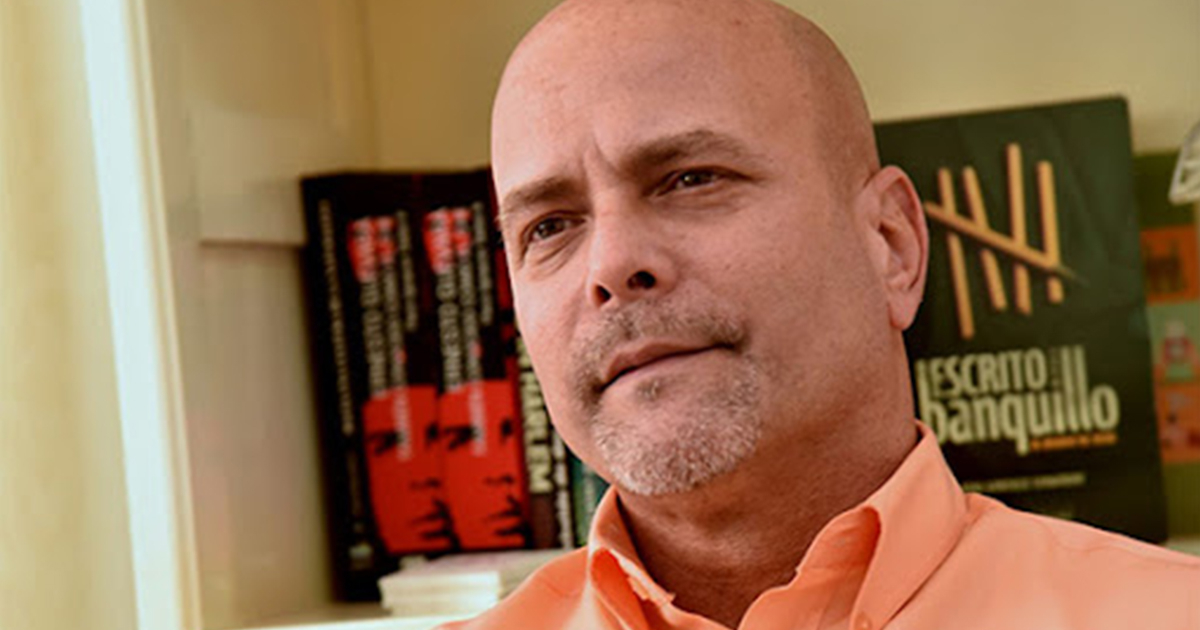
Related videos:
The former Cuban spy Gerardo Hernández, current national coordinator of the CDR, recently shared anecdotes about his experience in U.S. prisons, where he served 16 years in prison after being convicted as part of the so-called Wasp Network.
In his statements on the official program Mesa Redonda on December 17 -fully transcribed on Cubadebate-, Hernández shared the stories of several Cuban prisoners he met during his incarceration, most of whom, according to him, did not emigrate for political reasons.
He explained that among the Cubans he lived with, there were "balseros," "marielitos," and others who arrived in the United States lured by what he referred to as "the siren songs," seeking economic prosperity, but ended up in difficult situations.
"There were cases where they were offered 'help', but that help meant making them sell drugs or engage in something illegal. They ended up in prison, and some even lost contact with their families," he said.
Coexistence with Cuban prisoners and perception of the guards
The intelligence agent noted that, despite the ideological differences between him and some Cubans who had fled the socialist system, he never had conflicts with them.
According to Hernández, the American guards were surprised by how he, a "Cuban revolutionary," peacefully coexisted with those who had supposedly escaped the regime.
"In 16 years of imprisonment, none of us had a single problem with any Cuban or with any other inmate. In the end, we ended up educating them," he stated.
For the Hero of the Republic of Cuba, this demonstrated that the reasons behind the emigration of those Cubans were not political, but economic.
Reflections on the Cuban Adjustment Act
Hernández also compared the conditions faced by Cubans in their migration process to those of other nationalities, particularly Mexicans.
He mentioned how Cubans, protected by the Cuban Adjustment Act, could stay in the United States without fleeing from authorities, while migrants of other nationalities had to avoid being captured. "How different it would be if they told Mexicans that anyone who arrives and says 'I'm looking for freedom' would receive documents after a year and a day," he reflected.
The stories told by Hernández provide insight into the complexities of Cuban emigration, shaped both by politics and challenging economic conditions, while reaffirming his stance on the influence of external factors in the migration decisions of the island's citizens.
Frequently Asked Questions about Gerardo Hernández's Prison Experience and Cuban Emigration
Why does Gerardo Hernández claim that the Cuban prisoners he met in the U.S. did not emigrate for political reasons?
Gerardo Hernández states that most Cuban prisoners he met in the U.S. emigrated for economic reasons rather than political ones. According to his statements, many were seeking economic prosperity and were lured by "siren calls," but ended up in adverse situations, even becoming involved in illegal activities.
What was Gerardo Hernández's experience living with other Cuban prisoners in the U.S.?
Gerardo Hernández recounted that he lived peacefully with other Cuban prisoners in the U.S., despite ideological differences. He stated that he never had any issues with them during his 16 years in prison, which surprised U.S. guards given his status as a "Cuban revolutionary."
What does Gerardo Hernández think about the Cuban Adjustment Act?
Gerardo Hernández believes that the Cuban Adjustment Act offers advantages to Cubans compared to migrants from other nationalities. According to him, this law allows Cubans to remain in the U.S. without fear of deportation, which is different from the experience of migrants from other countries like Mexico.
What role do the CDR play in today's Cuban society according to Gerardo Hernández?
Gerardo Hernández, as the coordinator of the CDR, asserts that the organization seeks to engage the youth and adapt to new times. However, there is a widespread perception that the CDR is an instrument of control and repression by the Cuban regime, which has led to rejection and detachment among the population.
Filed under: